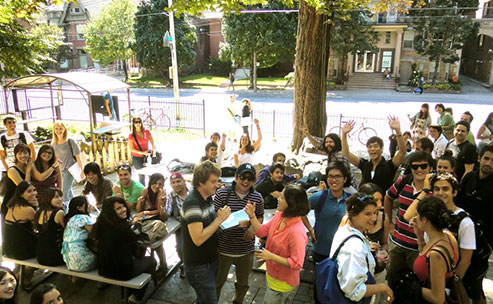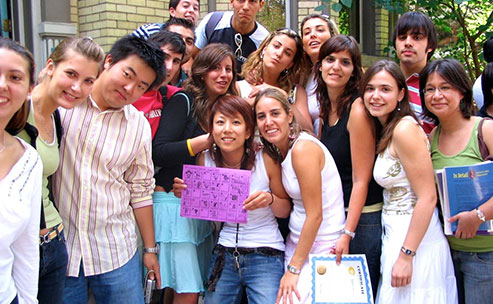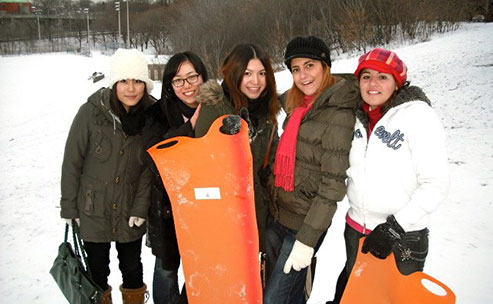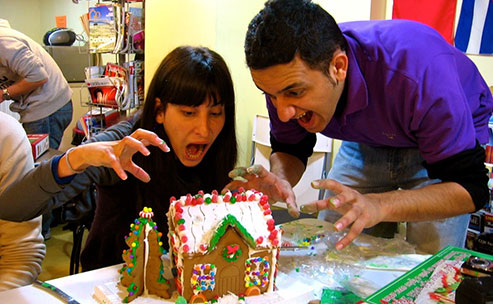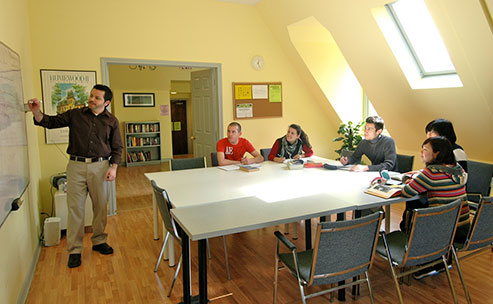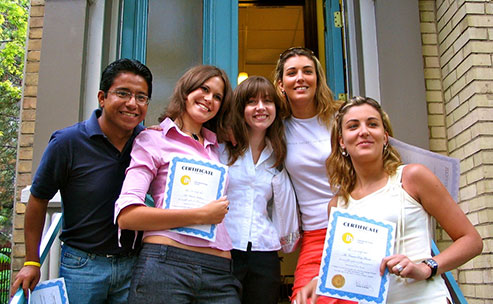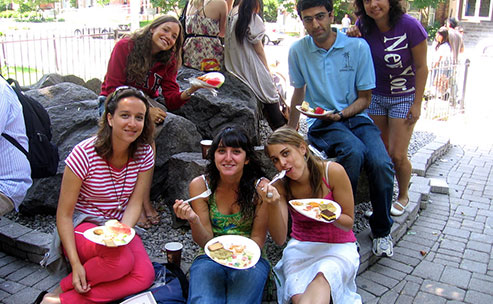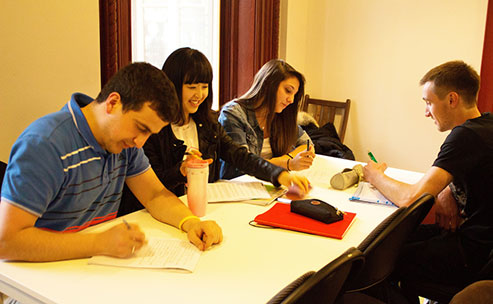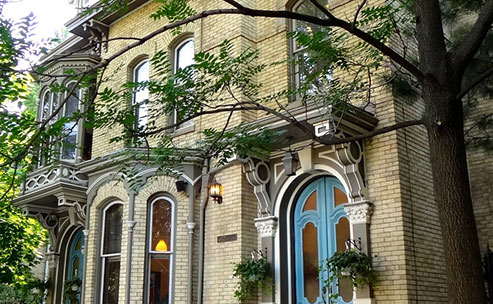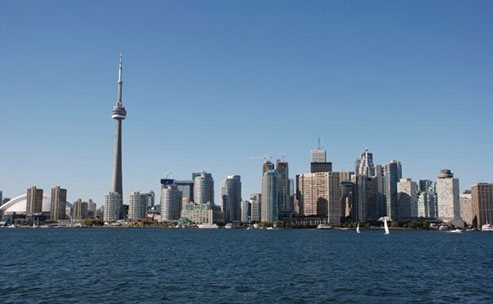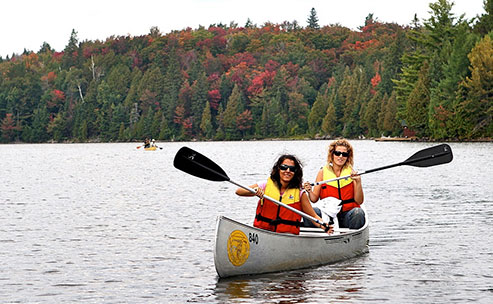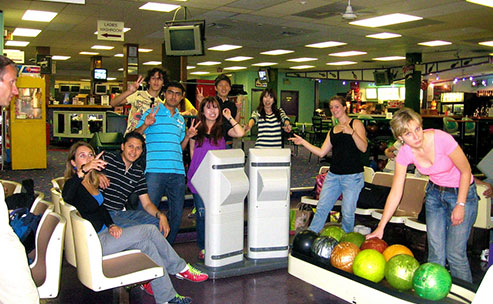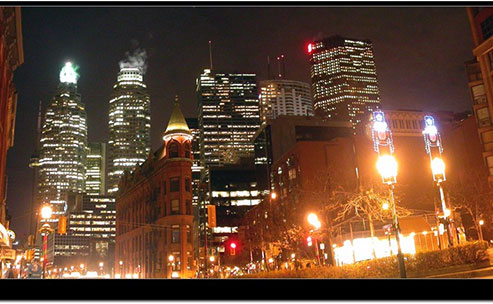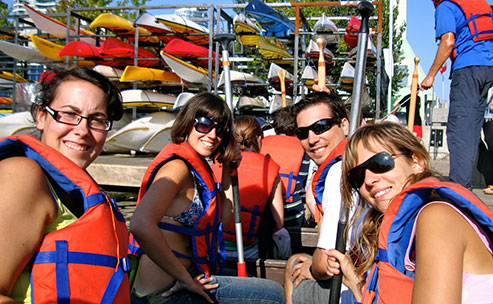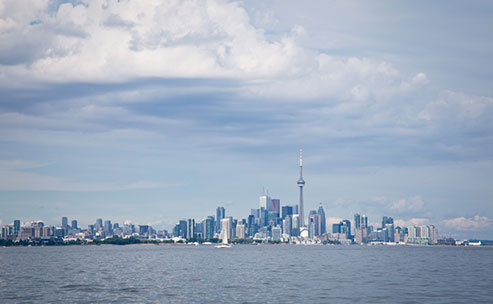How many trainees are there in a class?
The usual class size is about 8 students per class but the maximum class size is always 12 (and never more).
Where are most trainees who will be taking the course from?
We have students from over 60 different countries that study with us. However, you will most likely meet people from Mexico, Korea, Japan, Italy, Spain, Brazil, Venezuela, Switzerland, France, and Saudi Arabia.
What kind of Visa should I get to come to Canada?
If you plan to stay for 6 months or less, you only need a Visitor or Tourist Visa. You can study, travel or do a study and travel combination within this 6 month period with a Visitor Visa.
Check with the local embassy before your departure.
Each country has different requirements and regulations. If you obtain a job, make sure your employer assists you with your working permit.
How do I travel around the city?
It is fairly easy to travel by bus. Our accommodations are not far from the school.
What kinds of people take this course?
Participants encompass a broad range in age and experience. There are college-age students who are interested in traveling and working overseas; working professionals preparing to enter alternative careers or retirement; stay-at-home moms looking for some extra cash or to re-enter the workforce; people concerned about the economy looking for a job abroad; people wanting to travel and learn a new language and culture; and those who have been teaching in ESOL for many years without formal practical training. Non-native English speakers with strong English skills also take the course so they can teach English when they return to their own countries or elsewhere.
What are the entrance requirements?
You must have a high school degree and show a capacity for tertiary education including a good understanding of the English language and good writing skills. Course participants need to have a language level high enough to teach an Advanced level class. Non-native speakers should have the equivalent of the below test scores. All potential course participants are required to have an oral interview (which can be done by phone) and write an essay to ensure their language skills are adequate to take the course and to teach English. All participants must show a willingness to plan and teach in groups and to work reflectively.
For non-native speakers of English, the language proficiency requirements are set as:
- 650 (paper-based TOEFL)
- 280 (computer-based TOEFL)
- 115 (IBT TOEFL)
- 900 (TOEIC)
- Band 7 on IELTS
- C2 on the Common European Framework
- CPE
Please note that this is a guide only. If you have not done any of these tests, we can assess your English language level in the application process.
Do I receive job assistance?
Everybody has different needs and goals and we are dedicated to ensuring that all graduates accomplish each and every one of their teaching wishes. The experienced staff is composed of ESL and EFL industry experts that have assisted hundreds of graduates over the years. With the CELTA Qualification, a wide range of exciting ELT career and travel options will open up for you, not least the prospect of working in your favourite locations of your choice around the world (limited location availability).
What is the difference between TESOL and TESL?
Basically they are the same thing. TEFL (Teaching English as a Foreign Language), TESOL (Teaching English to Students of Other Languages), TESL (Teaching English as a Second Language).
TEFL is an acronym that is used more by US-based programs and TESL more by British programs. Most job postings will include one of these terms.
Can I change my homestay easily?
We work very hard to make sure we have only the best homestays working with us. In the event that you encounter problems with your homestay or find the match uncomfortable, you can discuss your situation with the Accommodations Coordinator who will help relocate you if necessary.
What is the weather like in Toronto Beach?
Lake Ontario helps Toronto's weather, making its climate one of the best in Canada. Toronto has a humid continental climate with warm, humid summers and cold winters. Generally speaking, spring and summer temperatures vary from 15 C (60F) to 25C (80F). During the winter, the average daytime temperature, with the exception of January (the coldest month), is slightly below freezing.


 ITTO School's Map
ITTO School's Map MEXICO
MEXICO Guadalajara
Guadalajara Puerto Vallarta
Puerto Vallarta Chiapas
Chiapas Playa del Carmen
Playa del Carmen ARGENTINA
ARGENTINA Buenos Aires
Buenos Aires ITALY
ITALY Florence
Florence CANADA
CANADA Toronto
Toronto Vancouver
Vancouver CHINA
CHINA Shanghai
Shanghai COSTA RICA
COSTA RICA Manuel Antonio
Manuel Antonio Playa Samara
Playa Samara CZECH REPUBLIC
CZECH REPUBLIC Prague
Prague FRANCE
FRANCE Toulouse
Toulouse GUATEMALA
GUATEMALA Antigua
Antigua PERU
PERU Cusco
Cusco SPAIN
SPAIN Barcelona
Barcelona Madrid
Madrid THAILAND
THAILAND Chiang Mai
Chiang Mai USA
USA New York
New York Chicago
Chicago Miami
Miami Online TEFL Programs
Online TEFL Programs Compare Course Features
Compare Course Features



